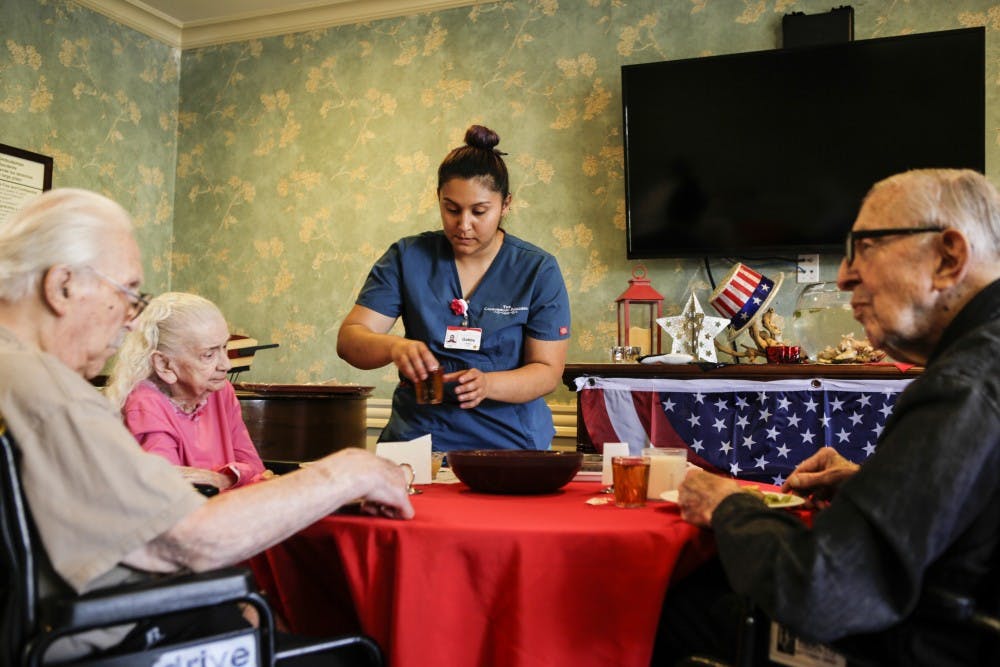Back in my hometown of Columbus, Ohio, seven current and former employees of a nursing home are accused of neglect toward two patients.
One patient had untreated wounds and later died of gangrene. Besides neglect, the nurses are also facing charges of involuntary manslaughter and forgery for falsifying medical records and faking signatures.
This treatment toward senior citizens brings up the question of whether or not nursing homes are a smart option for long-term care, and if the United States should reform its customs toward the elderly.
A study found that the average time spent in a U.S. nursing home was about 13 months, from death or removal, and that 53 percent of those placed in a home died within six months. This doesn’t show any direct correlation to patients dying from neglect, but nonetheless the data makes it seem like a nursing home is a synonym for a grave.
Despite the fact that in Indiana the monthly cost for a private room in a nursing home is roughly $7,817 , roughly 1.3 million Americans live in a nursing home. A common reason is that some people require 24-hour care, but with the instance in Ohio, can we fully trust nursing homes to provide exceptional care?
Where nursing homes cost around $83,000 annually per patient, in-home care can cost around $59,000 and assisted-living around $44,000. However, according to a Time article, “lawmakers have successfully incentivized people to age at home, which is far cheaper than institutionalized care.”
But do the costs really justify the amenities? I understand that for those who really do need the 24-hour care nursing homes would make the most sense, but not for those who are just old and not necessarily impaired.
Other countries like Japan and Vietnam house several generations and rely on them for help with daily chores and also for wisdom toward the younger generations. They’re treated with immense respect.
Why don’t we see more households like this in the United States? Too often do some believe that as soon as someone needs more help than a stereotypical working-class person is able to give it’s time to ship them off like sending a kid to boarding school?
Now, I’m not condoning that everyone should go pull their Grandpa Jimmy out of his nursing home — some people really do require that 24-hour care. But why does it seem so unfeasible for us to shift our mindset toward housing our elders if they can’t live by themselves?
Congress has taken a step towards this mindset by introducing the Geriatrics Workforce Improvement Act to the Senate, where its purpose is to “develop a workforce capable of providing complex, high-quality care that improves health outcomes and saves valuable resources by reducing unnecessary costs for a growing and diverse aging population.”
And speaking from personal experience, having a grandfather in an assisted-living community made it easier to do things with him than what I would imagine a nursing home would allow. Also, my great-grandpa will be turning 90 and he exercises more than I do while living comfortably at his home in Colorado.
In the end, unless nursing homes and their employees give off the air that they’re trustworthy nationwide, they shouldn’t be our first option if someone is starting to require additional care.
Not only is it cheaper to place someone in an assisted-living community, with in-home care or even just in the spare room of your house, but it also maintains a loving relationship that seems lost in a nursing home.






